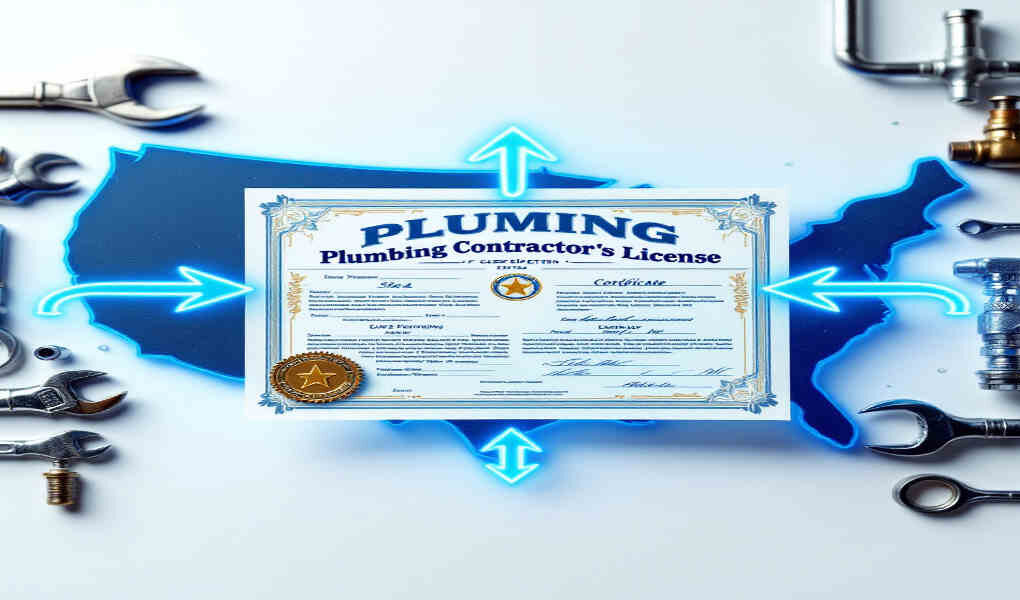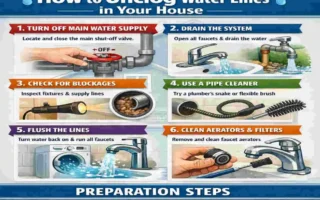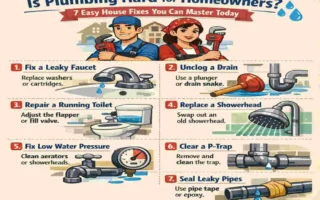Relocating to a new state can be an exciting opportunity for personal growth, career advancement, or business expansion. For professional plumbers, this often raises an important question: “Can you transfer your home plumbing license to another state?”
Plumbing is a critically regulated trade in the United States, as it directly impacts public health and safety. As a licensed plumber, your qualifications prove your expertise and commitment to professional standards. However, if you’re planning to relocate or expand your business to another state, the question of license portability becomes essential.
Understanding Plumbing Licenses and Their Purpose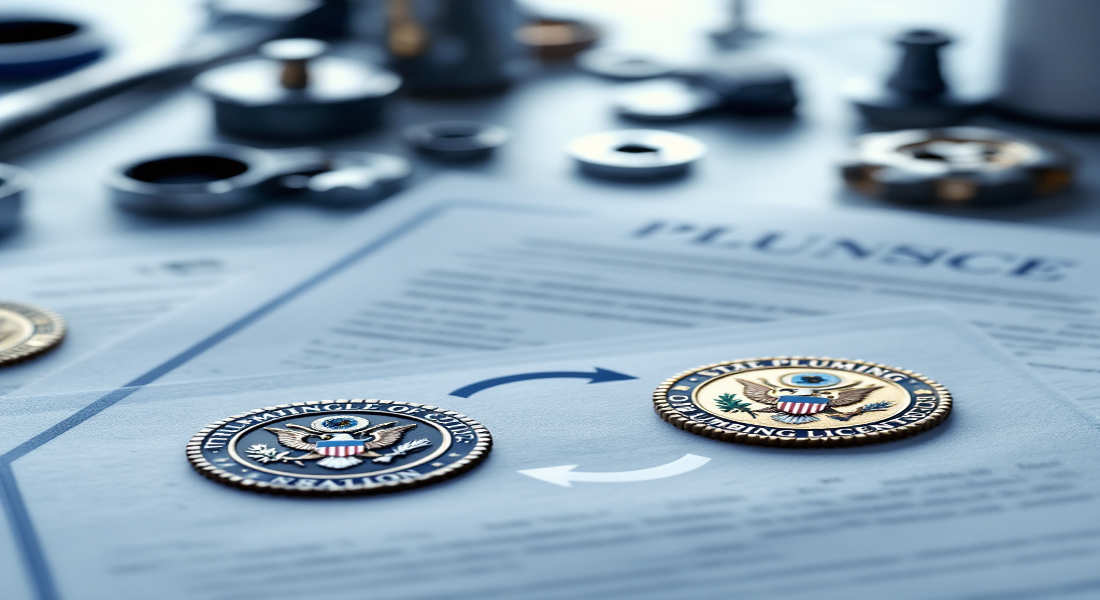
What is a Plumbing License?
A plumbing license is an official credential issued by a state authority that authorizes an individual to perform plumbing work legally within that state. It demonstrates that the plumber has met the minimum education, training, and competency standards required to perform safe and effective plumbing installations, repairs, and maintenance.
Why Are Plumbing Licenses Regulated at the State Level?
Each state in the United States has its own unique building codes, regulations, and safety standards. These differences are why plumbing licenses are regulated at the state level rather than federally. Licensing ensures compliance with local codes and protects public health by reducing risks like improper installations, water contamination, or gas leaks.
Types of Plumbing Licenses
Plumbing licenses generally fall into the following categories, depending on skill level and experience:
- Apprentice Plumber: Entry-level workers gaining experience under supervision.
- Journeyman Plumber: Intermediate-level professionals who can perform independent plumbing work.
- Master Plumber: The highest level, often requiring years of experience and the authority to supervise teams or own a plumbing business.
Why Licensing is Crucial
- Safety: Ensures a safe water supply and adherence to sanitation practices.
- Compliance: Meets local and state building codes.
- Professionalism: Demonstrates expertise and builds trust with clients.
The Concept of License Reciprocity in Plumbing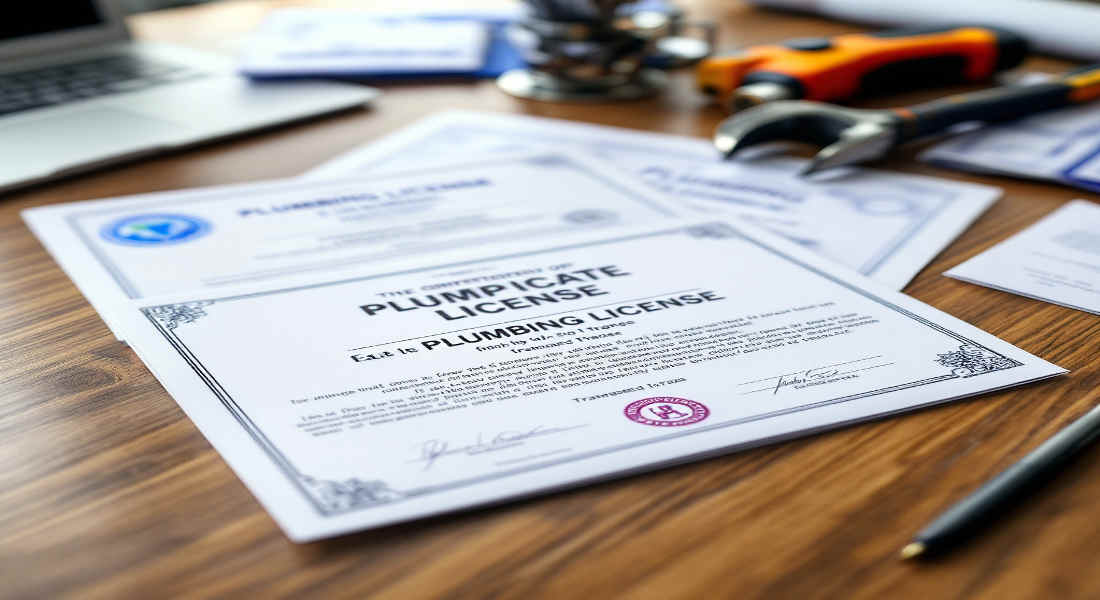
What is License Reciprocity?
License reciprocity refers to agreements between states that allow professionals licensed in one state to practice in another without undergoing the full licensing process again. This can simplify the transition for plumbers moving across state lines.
How Reciprocity Works
Reciprocity varies by state and profession. For house plumbing, it typically allows a license holder to apply for a license in the new state without retaking exams or fulfilling extensive additional requirements. However, the specific terms vary widely.
Reciprocity and Plumbing Licenses
While some states have reciprocity agreements for plumbing licenses, these agreements are not universal. Reciprocity is more common in regions where states share similar building codes and licensing standards.
States with Known Reciprocity Agreements
Several states are known to have house plumbing license reciprocity agreements, including:
- Maine, New Hampshire, Vermont
- Idaho, North Dakota, Oregon, Wyoming
These agreements often simplify the licensing process, but additional documentation may still be required.
Benefits of Reciprocity
- Faster Licensing: Reduces delays in starting work in the new state.
- Cost Savings: Eliminates the need to retake exams or complete additional training.
- Convenience: Streamlines the process, allowing plumbers to focus on their careers.
Can You Transfer Your Plumbing License to Another State?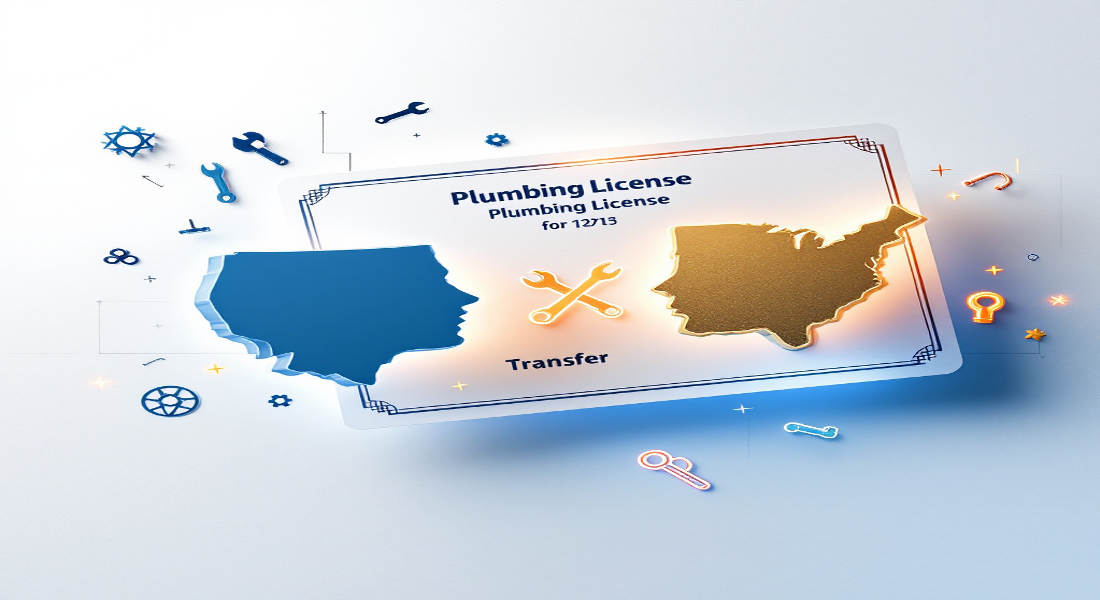
Do Plumbing Licenses Automatically Transfer?
Unfortunately, plumbing licenses do not automatically transfer from one state to another. Each state has its own licensing requirements, which may include specific exams, minimum experience levels, or continuing education requirements.
Why Don’t Licenses Transfer Universally?
- Different State Requirements: Building codes, safety standards, and regulations vary from state to state.
- Examinations and Standards: Some states require state-specific exams, while others may not.
- Local Compliance: States prioritize local codes for the sake of public safety and welfare.
Steps to Take if No Reciprocity Exists
If no reciprocity exists between your current and new state, you’ll need to follow these steps:
- Submit a new license application.
- Provide proof of your current license and experience.
- Complete any required exams or additional training.
- Pay the necessary licensing fees.
Contacting the Licensing Board
Each state has a plumbing licensing board that oversees the process. It’s crucial to contact the board early to understand the specific requirements and avoid delays.
Step-by-Step Guide to Transferring or Obtaining a Plumbing License in Another State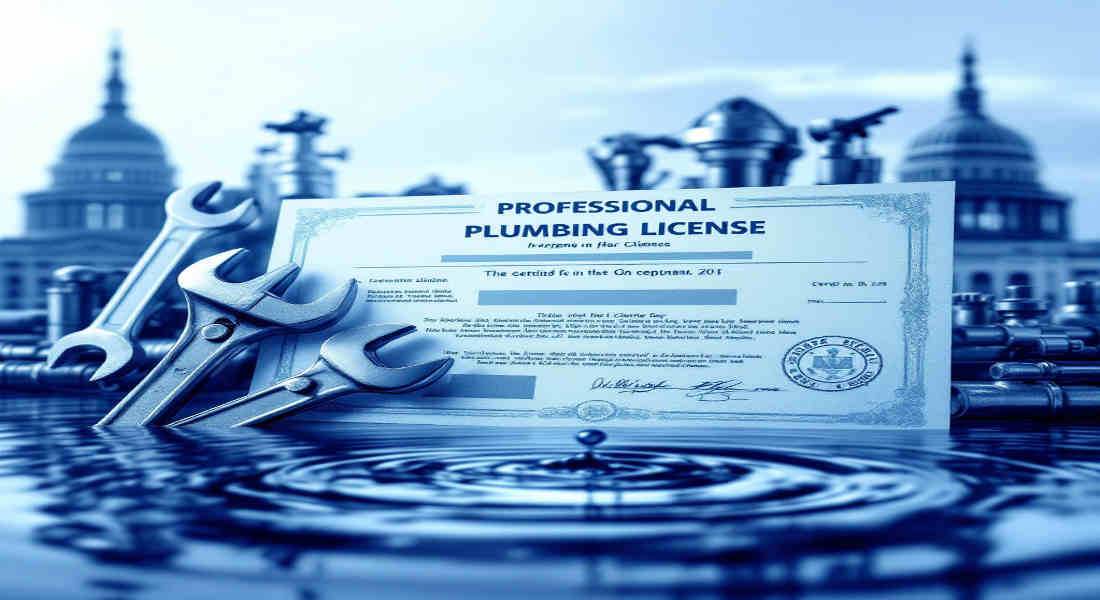
Research Licensing Requirements
Start by researching the plumbing licensing requirements for your new state. Check for specific exams, training, and fees.
Check for Reciprocity Agreements
Determine if your current state has a reciprocity agreement with your new state. Visit the state plumbing licensing board’s website or call them directly.
Prepare Documentation
Gather necessary documents, such as:
- Proof of your current license.
- Records of work experience.
- Exam scores and certifications.
Challenges and Considerations When Moving Your Plumbing License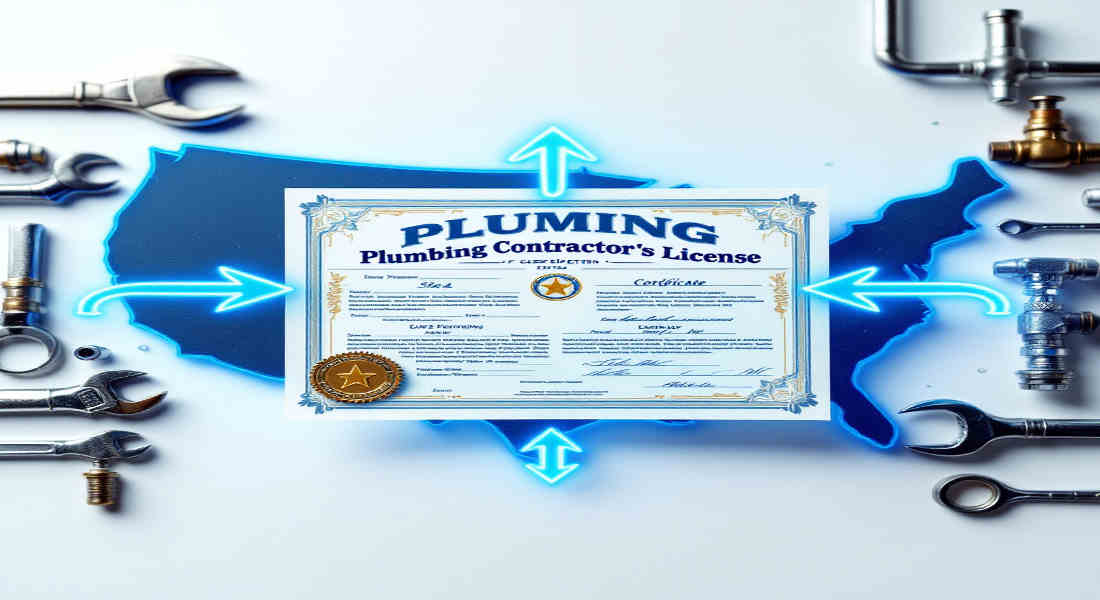
Common Challenges
- Variability in Licensing Requirements: No two states have identical regulations.
- Exam Retakes: Some states require you to retake exams, even with years of experience.
- Time and Cost: Licensing can be time-consuming and expensive.
Impact on Business Operations
Transitioning without proper house plumbing licensing can disrupt your business and harm client trust. Working without a valid license is illegal and risks severe penalties.
How to Make the Transition Easier: Best Practices
Contact State Boards Early
Begin the process as soon as you plan your move. Early communication avoids delays.
Keep Detailed Records
Maintain thorough records of your experience, certifications, and continuing education.
Network Locally
Join local plumbing associations to build connections and learn about the industry in your new state.
Temporary Licenses
Check if your new state offers temporary or provisional licenses to work while your application is processed.
SEO Tips for Plumbing Businesses Expanding Across States
Why SEO is Important
Expanding to a new state means building a new customer base. SEO helps your business stand out online.
Tips for SEO Success
- Update Your Website: Add Location-Specific Pages for New States.
- Google Business Profile: Claim and optimize your profile for the new area.
- Focus on Local SEO: Use keywords like “licensed plumber in [State].”
- Encourage Reviews: Positive reviews build credibility with local clients.
FAQ: Can You Transfer a House Plumbing License to Another State?
Can you transfer a plumbing license to another state?
In most cases, plumbing licenses cannot be directly transferred to another state. However, some states offer reciprocity agreements or simplified processes for licensed plumbers from specific states.
What is a reciprocity agreement?
A reciprocity agreement allows plumbers licensed in one state to obtain a license in another state without retaking all exams. This depends on whether the two states recognize each other’s licensing requirements.
Which states have reciprocity for plumbing licenses?
Reciprocity agreements vary by state. For example:
- Texas has agreements with some neighboring states.
- Florida does not offer reciprocity but allows licensed out-of-state plumbers to apply through endorsement.
Check with the licensing board of your destination state for specific rules.
What steps should I take to transfer my plumbing license?
- Research state requirements: Contact the state’s licensing board to confirm qualifications.
- Submit proof of your license: Provide documentation of your current license, training, and experience.
- Complete additional requirements: You may need to pass a state-specific exam or meet other criteria.
- Pay fees: Application and licensing fees may apply.
Do all states require a plumbing license?
No, not all states require plumbers to be licensed, but most do. It’s important to check the specific regulations for the state you’re moving to.
What if there’s no reciprocity?
If reciprocity isn’t available, you’ll likely need to:
- Apply for a new license in the new state.
- Pass any required exams (practical or written).
- Fulfill state-specific education or work hour requirements.

